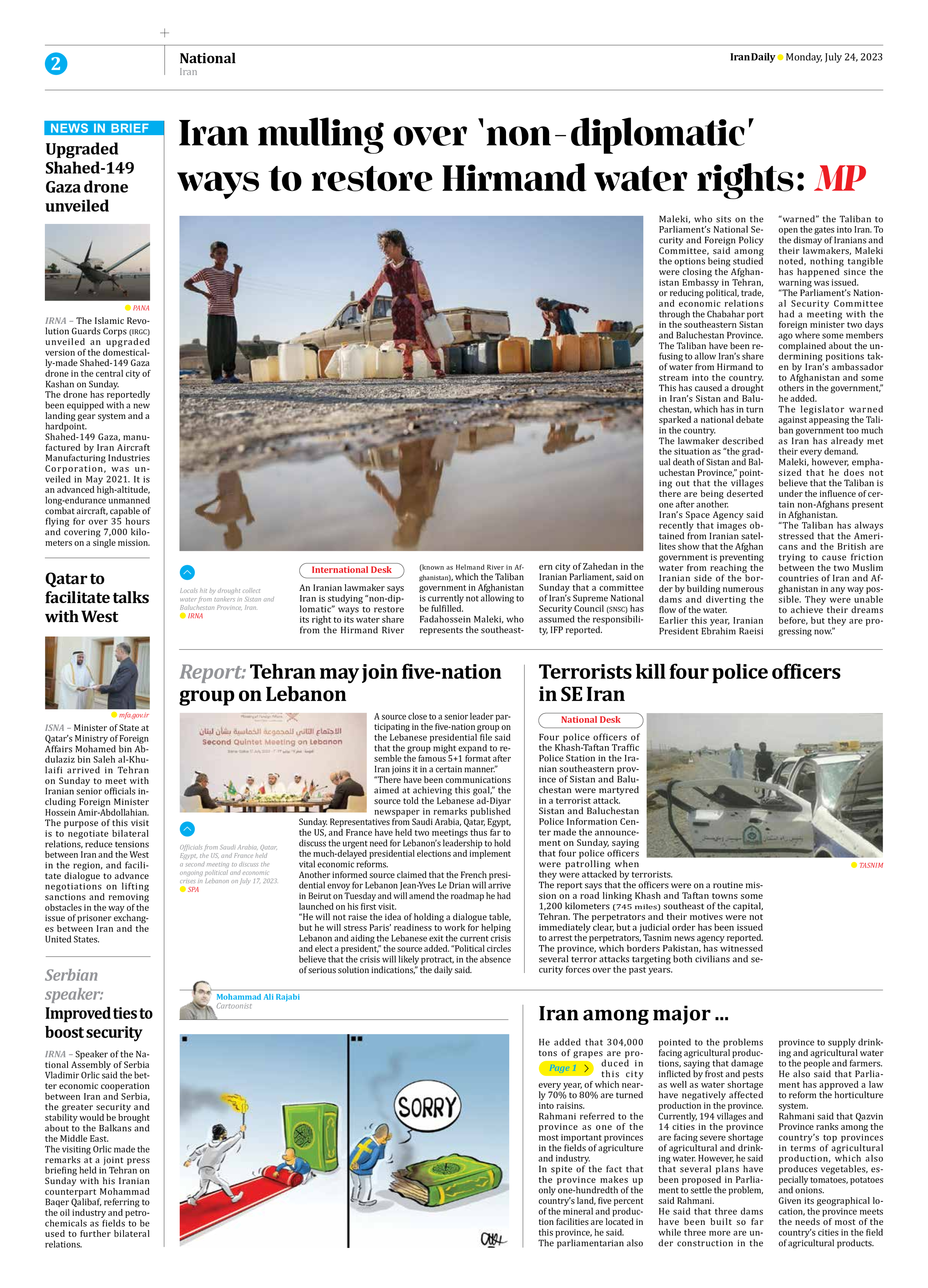
Iran mulling over ‘non-diplomatic’ ways to restore Hirmand water rights: MP
An Iranian lawmaker says Iran is studying “non-diplomatic” ways to restore its right to its water share from the Hirmand River (known as Helmand River in Afghanistan), which the Taliban government in Afghanistan is currently not allowing to be fulfilled.
Fadahossein Maleki, who represents the southeastern city of Zahedan in the Iranian Parliament, said on Sunday that a committee of Iran’s Supreme National Security Council (SNSC) has assumed the responsibility, IFP reported.
Maleki, who sits on the Parliament’s National Security and Foreign Policy Committee, said among the options being studied were closing the Afghanistan Embassy in Tehran, or reducing political, trade, and economic relations through the Chabahar port in the southeastern Sistan and Baluchestan Province.
The Taliban have been refusing to allow Iran’s share of water from Hirmand to stream into the country. This has caused a drought in Iran’s Sistan and Baluchestan, which has in turn sparked a national debate in the country.
The lawmaker described the situation as “the gradual death of Sistan and Baluchestan Province,” pointing out that the villages there are being deserted one after another.
Iran’s Space Agency said recently that images obtained from Iranian satellites show that the Afghan government is preventing water from reaching the Iranian side of the border by building numerous dams and diverting the flow of the water.
Earlier this year, Iranian President Ebrahim Raeisi “warned” the Taliban to open the gates into Iran. To the dismay of Iranians and their lawmakers, Maleki noted, nothing tangible has happened since the warning was issued.
“The Parliament’s National Security Committee had a meeting with the foreign minister two days ago where some members complained about the undermining positions taken by Iran’s ambassador to Afghanistan and some others in the government,” he added.
The legislator warned against appeasing the Taliban government too much as Iran has already met their every demand.
Maleki, however, emphasized that he does not believe that the Taliban is under the influence of certain non-Afghans present in Afghanistan.
“The Taliban has always stressed that the Americans and the British are trying to cause friction between the two Muslim countries of Iran and Afghanistan in any way possible. They were unable to achieve their dreams before, but they are progressing now.”







